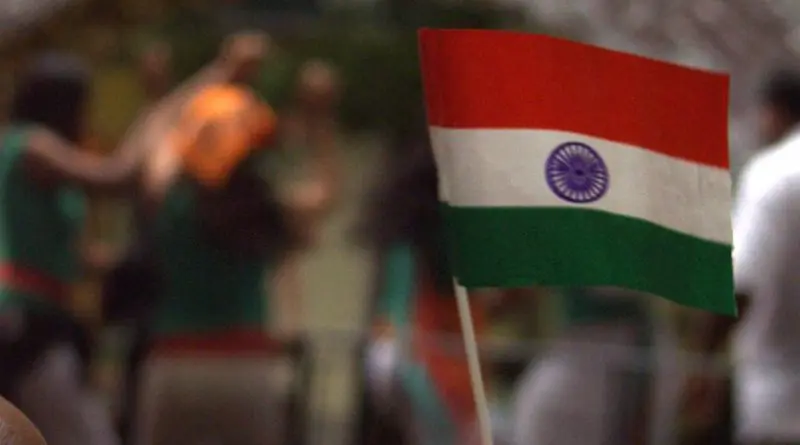India’s Defense-Diplomacy Strategy On Right Track – OpEd
Irksome relationship that India now has with Pakistan and China, the two neighboring countries, have made many Indians including a few former diplomats and war veterans wonder whether India has to fight two front war in the immediate future. The Chief of Army Staff has also given credence to such view, by asserting that India has the capability to fight on two fronts. Some people even think that India may have to fight on three fronts ,the additional front being internal unrest caused by a few extremists who will get the support of arms or money or both from abroad.
Such situation of having to fight on more than one front, if it were to happen, would certainly stretch the Indian military capability and economy to a maximum extent. In such case, India will have to divert it’s resources to a considerable extent to procure arms and conduct the war, which will cause severe setback to the plans and targets of government of India for industrial and economic growth. Certainly, India would not want such a situation to develop.
The scenario facing Pakistan is no better. Pakistan has a very weak economy now, apart from other difficulties that it faces such as political instability, over powering attitude of the army over civilian authorities and the dominating presence of several terrorist groups. The recent warning of President Trump to Pakistan to cut US aid has caused considerable anxiety to Pakistan, as it would inevitably force Pakistan to go much more under China’s dominance and control that will have serious consequences for future of Pakistan. It certainly cannot afford a full scale war with India, even in alignment with China.
Even China is now very vulnerable despite its financial, industrial and military strength, as it depends excessively on large scale international trade of products produced in China to sustain it’s economic stability. Having built huge industrial capacity in various fields and with excessive investment in infrastructure projects, China needs strong trade relationships with all countries. It is now investing in several countries abroad and it needs cordial relationship with other countries desperately.
Already, there is apprehension in several neighbouring countries like Sri Lanka, Bangladesh, Nepal and others about China’s efforts to economically penetrate these countries and several of them are becoming more cautious in dealing with China. In this scenario facing China, it would be a foolhardy exercise for China to go for full scale war with India, as it will project it as an aggressive war monger.
In the given circumstances, it is likely that both China and Pakistan, sharing common animosity against India for their own reasons , will try to create problems for India, to prevent India from settling down with its national growth oriented programs. Pakistan will continue to try to maintain it’s strategy of creating disturbances in Kashmir to the extent possible, while China would continue to try to create tension such as the recent Doklam skirmish , it’s claim on Arunachal Pradesh, etc. In all probability, both China and Pakistan may coordinate their action plans to fulfill their common objective of showing hostility to India and destabilizing the country.
Given such ground scenario, Modi government is implementing it’s strategies to counter Pakistan and China by combining military objectives and diplomatic initiatives. After Mr. Modi has come to power, he has been building cordial relationship with several countries and particularly with countries like USA, Japan, Israel and a few countries in the middle east. Mr. Modi’s personal charisma has certainly enabled India to cultivate such overseas relationships.
The recent move of the Modi government to form an axis with USA, Japan and Australia that has economic and defence implications is extremely significant.
Further, India’s rejection of China’s OBOR project has received silent approval from several countries who fear China’s dominance in future , though they do not want to displease China outwardly at the moment.
Similarly, the cultivation of relationships and building up of cooperation with Afghanistan and Israel will considerably help India in various ways in tackling any possible threat from China and Pakistan in future. Israel’s military intelligence capability and expertise in defence strategies can help India considerably.
India’s participation in building deep sea port in Chabahar in Iran , which would provide access to Afghanistan and several other advantages, is yet another indication of pragmatic policies on long term strategies of the government of India.
What is particularly noteworthy is that Modi government is able to maintain cordial relationship with Iran and USA at the same time. India maintains friendly relations with Israel even as middle east countries which are hostile to Israel are also kept in good humor. Such moves are indication of high level of diplomatic capability that Modi government is able to exhibit.
Government of India is fully aware that it has to avert a full fledged conflict with China and Pakistan. While such conflict will do considerable harm to Pakistan and China also , Modi government has shown maturity to realize that it should be more interested in it’s own welfare and such conflicts will serve no purpose,
Matured diplomacy along with building defence capability to the extent possible is Modi government’s strategy to deal with China and Pakistan and it is playing its card well. It is on the right track.

